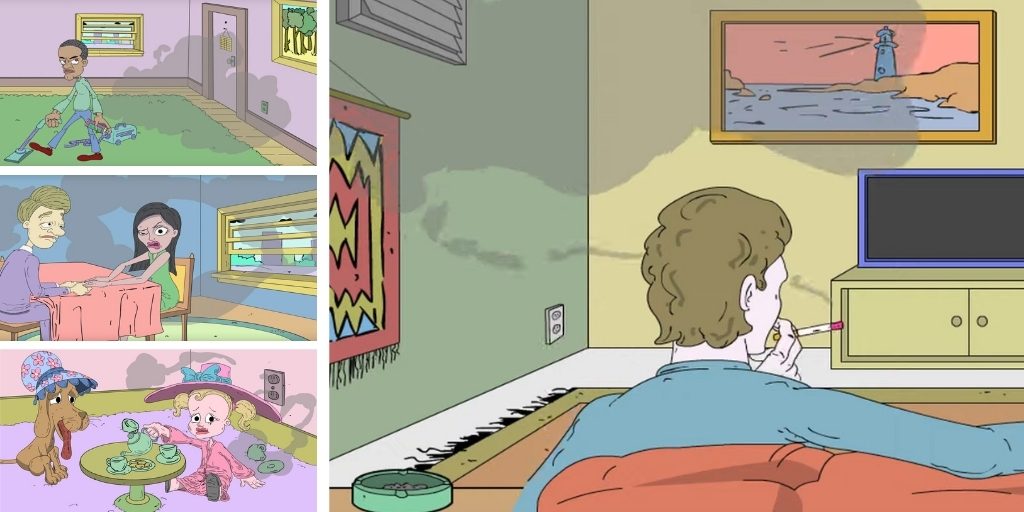Two more cities have prohibited smoking inside apartment units.
On April 26, 2022, Riverside, Calif., city leaders preliminarily approved a ban on smoking in multifamily-housing rental complexes, including individual apartment homes and attached balconies and patios. Latino tenants helped drive the measure.
On May 10, 2022, Vallejo, Calif., city leaders banned smoking in multi-unit residences.
Bans like these—to reduce exposure to harmful secondhand smoke among apartment and condo tenants—are on the rise.
“Upon adoption, Riverside would join at least 167 California cities and counties that have enacted ordinances to restrict smoking in multifamily housing complexes, said Karina Funez, advocacy policy manager for the American Lung Association in California, which has been tracking such measures,” acccording to David Downey of The Press-Enterprise. “Of those, at least 68 local government bodies had passed ‘strong, comprehensive’ measures making apartments, condominiums and common areas smoke free.”
What Do the Smoking Bans Entail in Riverside, Vallejo?
In Riverside (53.6% Latino), City Council members blessed a ban on smoking in common areas, like courtyards and pools. The ban extends to individual apartment homes and attached balconies and patios.
Ana Palma, a Riverside apartment renter, led a tenant group in bringing the issue to city leaders.
“We think this is going to improve the quality of living for a lot of the people living in apartments,” said Palma, according to The Press-Enterprise. Palma’s children have asthma exacerbated by secondhand smoke. “We have the right to breathe clean air in our own home.”
 In Vallejo (27.5% Latino), a new ordinance bans smoking in multi-unit residences and in parks and public events.
In Vallejo (27.5% Latino), a new ordinance bans smoking in multi-unit residences and in parks and public events.
Landlords must give notice to tenants and prospective tenants of the ban. They also must include “no smoking” requirements in any occupancy agreements, and put up no-smoking signs.
The ban aims to reduce exposure to secondhand smoke in apartments where vulnerable residents live, according to a city report.
“[The city report] states that secondhand smoke exposure in multi-unit housing contributes to tobacco-related health inequities. The report gives the example that in California, when compared with adults who live in single-family homes, adults who live in multi-unit housing are more likely to be people of color; lower income or below the poverty line; and/or uninsured,” according to The Times-Herald. “Additionally, secondhand smoke in multi-unit housing is a significant threat to the health and safety of children.”
Why Are Cities Banning Smoking Inside Apartments?
Nationally, one quarter of U.S. residents—approximately 79 million people—live in multifamily properties, such as apartments and condos.
Most are nonsmokers. But about half are exposed to secondhand smoke.
 Inside multifamily dwellings, secondhand smoke can travel through doorways, halls, windows, ventilation systems, electrical outlets, and gaps around fixtures and pipes.
Inside multifamily dwellings, secondhand smoke can travel through doorways, halls, windows, ventilation systems, electrical outlets, and gaps around fixtures and pipes.
“Based on several studies, an estimated 44 percent to 53 percent of multi-unit housing residents that do not allow smoking in their home, have experienced secondhand smoke infiltration in their home from elsewhere in or around the building,” according to the American Lung Association.
Smoke-free policies are the only way to prevent exposure to secondhand smoke in multifamily units, according to HUD.
“Secondhand smoke flows between units through air filtration systems and other means. It cannot be contained. Multifamily buildings share air ducts or vents, which means a lit cigarette in one unit can easily transmit tobacco smoke into another unit,” according to HUD. “Even in modern buildings designed to minimize air transfer among units, there is no way to guarantee that smoke will not be blown from unit to unit through open windows. A recent public housing study identified movement of smoke among units and evidence of improved air quality in buildings with smoke-free policies.”
Without such a policy, multifamily tenants are exposed to numerous harms.
“Most know that smoking harms the smoker, but few realize there is solid research linking secondhand smoke to asthma, SIDS, COPD, recurrent ear and pulmonary infections, many cancers, and the possibility to spread COVID-19,” Dr. Claudia Miller, leader of the Hoffman TILT (Toxicant-induced Loss of Tolerance) research program at UT Health San Antonio, said. “The personal, social, and financial costs of COVID-19 and these secondhand-smoking conditions are incalculable.”
What Can You Do to Help Your City Address Smoking in Apartments?
Download the Salud America! “Help Your City Adopt Smoke-Free Multifamily Housing!” Action Pack.
The action pack will help you engage local leaders in exploring a smoke-free multifamily housing policy for common areas and individual units.
“Experts say a smoke-free multifamily housing policy can protect the health of tenants and staff of apartments from secondhand smoke, as well as save property owners money in unit maintenance, fire prevention, insurance, and reduced legal liability,” said Dr. Amelie G. Ramirez, action pack creator and director of the Salud America! Latino health equity program at UT Health San Antonio.
What Can You Do to Protect Others from Secondhand Smoke?
Promote clean indoor air with the new “Mil Gracias (A Thousand Thanks) for Not Smoking Indoors!” campaign from UT Health San Antonio.
The campaign invites people to share gratitude for smokers and vapers who respect others’ air during the COVID-19 respiratory pandemic:
- Email a “thank you” message to smokers who protect others by not smoking indoors.
- Sign a letter to acknowledge the dangers of secondhand smoke.
- Download an Action Pack to promote smoke-free multifamily housing in your city.
The Mil Gracias campaign features English and Spanish flyers with key messages to help people reduce their risk for smoking-related diseases.
If you are interested in quitting cigarettes or vaping, join Quitxt is a bilingual service from UT Health San Antonio, and the Cancer Prevention and Research Institute of Texas. Quitxt sends messages via phone texts or Facebook Messenger chat to help South Texas adults quit smoking.
To join: For English, text “iquit” to 844-332-2058. For Spanish, text “lodejo” to 844-332-2058.
“Quitting smoking could immediately improve your chances of staying healthy. Within 20 minutes of quitting smoking, the heart returns to normal resting rate, blood circulation improves and blood pressure begins to drop,” The Daily Sabah reports. “Within 72 hours, healthy cells begin to replace damaged ones in the lungs, and the lungs regain full capacity.”
The post More Cities Are Banning Smoking in Apartment Units appeared first on Salud America.






